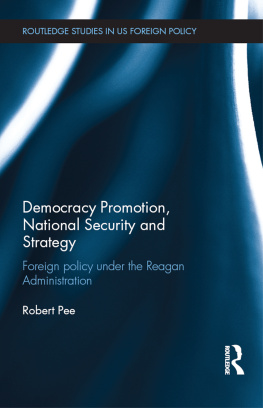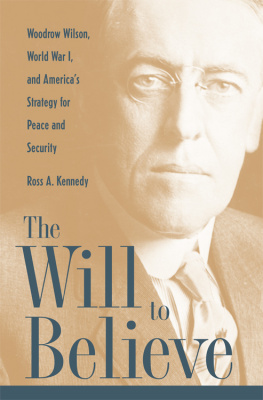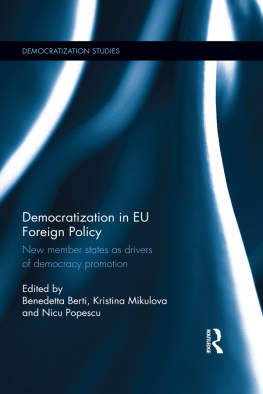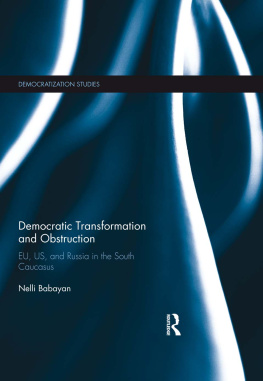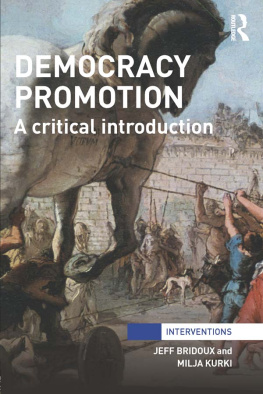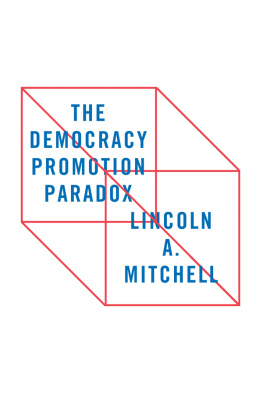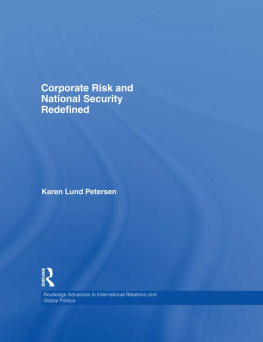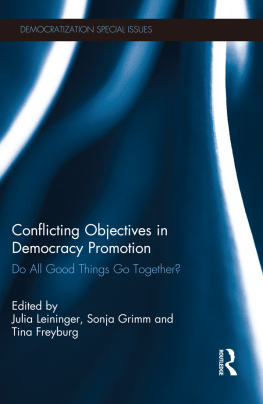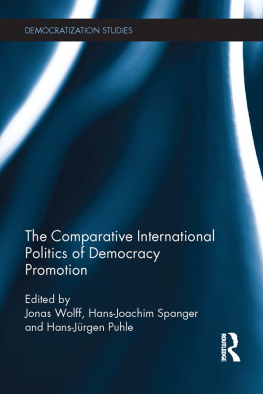Democracy Promotion, National Security and Strategy
Robert Pee delivers a carefully crafted, nuanced, and comprehensive study of the rise of democracy promotion as a critical component of US foreign policy under the Reagan administration. The analysis is insightful and sophisticated, offering an excellent understanding of the sources of tensions that animate US democracy promotions purpose and practices from its inception to the present days.
Dr Jeff Bridoux, Lecturer in International Politics, Aberystwyth University, UK
This book investigates the relationship between democracy promotion and US national security strategy through an examination of the Reagan administrations attempt to launch a global campaign for democracy in the early 1980s, which culminated in the foundation of the National Endowment for Democracy in 1983.
Through a case study of the formation and early operations of the National Endowment for Democracy under the Reagan administration, based on primary documents from both the national security bureaucracy and the private sector, this book shows that while democracy promotion provided a new tactical approach to the conduct of US political warfare operations, these operations remained tied to the achievement of traditional national security goals such as destabilising enemy regimes and building stable and legitimate friendly governments, rather than being guided by a strategy based on the universal promotion of democracy.
Analysing the relationships between state agencies and non-state actors in the field of democracy promotion, and the strategic and organisational tensions that act to limit the promotion of democracy by the US, this book will be of interest to students and scholars of US Foreign Policy, Democracy Promotion and the Reagan Administration.
Robert Pee obtained his PhD at the University of Birmingham in 2013. His research interests focus on US national security strategy, democracy promotion and the role of non-state actors in the formation and implementation of US foreign policy.
Routledge Studies in US Foreign Policy
Edited by
Inderjeet Parmar
City University
and
John Dumbrell
University of Durham
This new series sets out to publish high quality works by leading and emerging scholars critically engaging with United States Foreign Policy. The series welcomes a variety of approaches to the subject and draws on scholarship from international relations, security studies, international political economy, foreign policy analysis and contemporary international history.
Subjects covered include the role of administrations and institutions, the media, think tanks, ideologues and intellectuals, elites, transnational corporations, public opinion, and pressure groups in shaping foreign policy, US relations with individual nations, with global regions and global institutions and Americas evolving strategic and military policies.
The series aims to provide a range of books from individual research monographs and edited collections to textbooks and supplemental reading for scholars, researchers, policy analysts, and students.
United States Foreign Policy and National Identity in the 21st Century
Edited by Kenneth Christie
New Directions in US Foreign Policy
Edited by Inderjeet Parmar, Linda B. Miller and Mark Ledwidge
Americas Special Relationships
Foreign and domestic aspects of the politics of alliance
Edited by John Dumbrell and Axel R. Schfer
US Foreign Policy in Context
National ideology from the founders to the Bush doctrine
Adam Quinn
The United States and NATO since 9/11
The transatlantic alliance renewed
Ellen Hallams
Soft Power and US Foreign Policy
Theoretical, historical and contemporary perspectives
Edited by Inderjeet Parmar and Michael Cox
The US Public and American Foreign Policy
Edited by Andrew Johnstone and Helen Laville
American Foreign Policy and Postwar Reconstruction
Comparing Japan and Iraq
Jeff Bridoux
Neoconservatism and American Foreign Policy
A critical analysis
Danny Cooper
US Policy Towards Cuba
Since the Cold War
Jessica F. Gibbs
Constructing US Foreign Policy
The curious case of Cuba
David Bernell
Race and US Foreign Policy
The African-American foreign affairs network
Mark Ledwidge
Gender Ideologies and Military Labor Markets in the U.S.
Saskia Stachowitsch
Prevention, Pre-Emption and the Nuclear Option
From Bush to Obama
Aiden Warren
Corporate Power and Globalization in US Foreign Policy
Edited by Ronald W. Cox
West Africa and the US War on Terror
Edited by George Klay Kieh and Kelechi Kalu
Constructing Americas Freedom Agenda for the Middle East
Oz Hassan
The Origins of the US War on Terror
Lebanon, Libya and American intervention in the Middle East
Mattia Toaldo
US Foreign Policy and the Rogue State Doctrine
Alex Miles
US Foreign Policy and Democracy Promotion
From Theodore Roosevelt to Barack Obama
Edited by Michael Cox, Timothy J. Lynch and Nicolas Bouchet
Local Interests and American Foreign Policy
Why international interventions fail
Karl Sandstrom
The Obama Administrations Nuclear Weapon Strategy
The promises of Prague
Aiden James Warren
Obamas Foreign Policy
Ending the War on Terror
Michelle Bentley and Jack Holland
United StatesAfrica Security Relations
Terrorism, regional security and national interests
Edited by Kelechi A. Kalu and George Klay Kieh, Jr.
Obama and the World
New directions in US foreign policy 2nd edition
Edited by Inderjeet Parmar, Linda B. Miller and Mark Ledwidge
The United States, Iraq and the Kurds
Mohammed Shareef
Weapons of Mass Destruction and US Foreign Policy
The strategic use of a concept
Michelle Bentley
American Images of China
Identity, power, policy
Oliver Turner
North KoreaUS Relations under Kim Jong II
The quest for normalization?
Ramon Pacheco Pardo
Congressional Policymaking in the Post-Cold War Era
Sino-U.S. relations
Joseph Gagliano
US Foreign Policy and China
Bushs first term
Guy Roberts
Presidential Rhetoric from Wilson to Obama
Constructing crises, fast and slow
Wesley Widmaier
American Exceptionalism
An idea that made a nation and remade the world
Hilde Restad
The President, the State and the Cold War
Comparing the foreign policies of Truman and Reagan
James Bilsland
Democracy Promotion, National Security and Strategy
Foreign policy under the Reagan Administration
Robert Pee
Democracy Promotion as US Foreign Policy
Bill Clinton and democratic enlargement
Nicolas Bouchet

